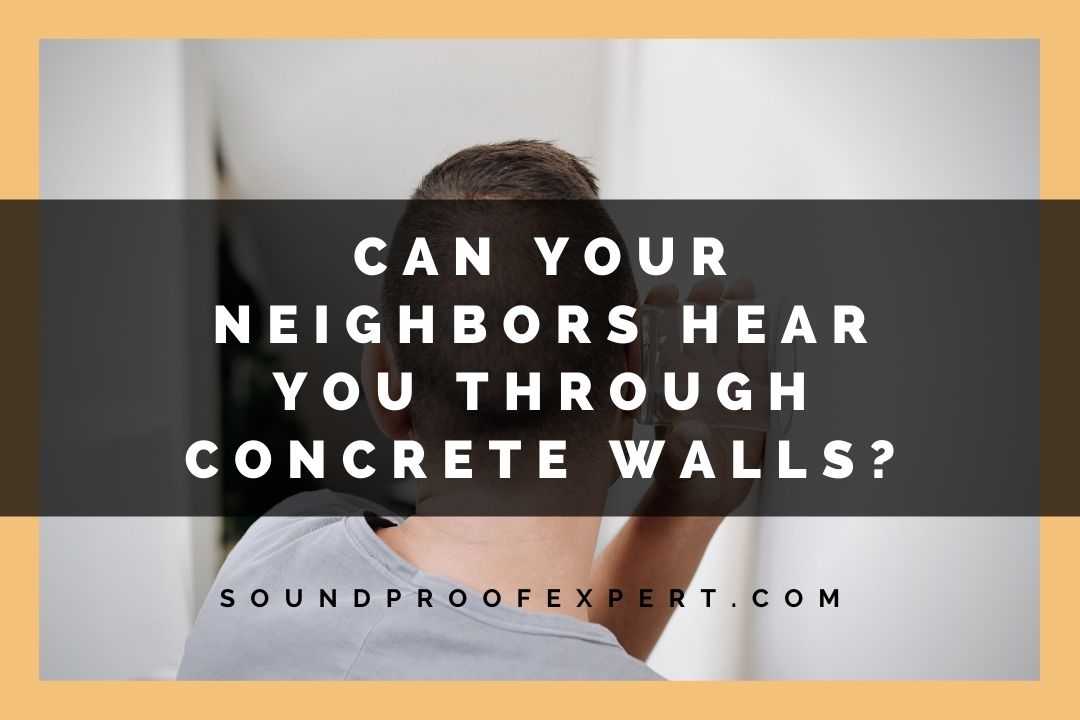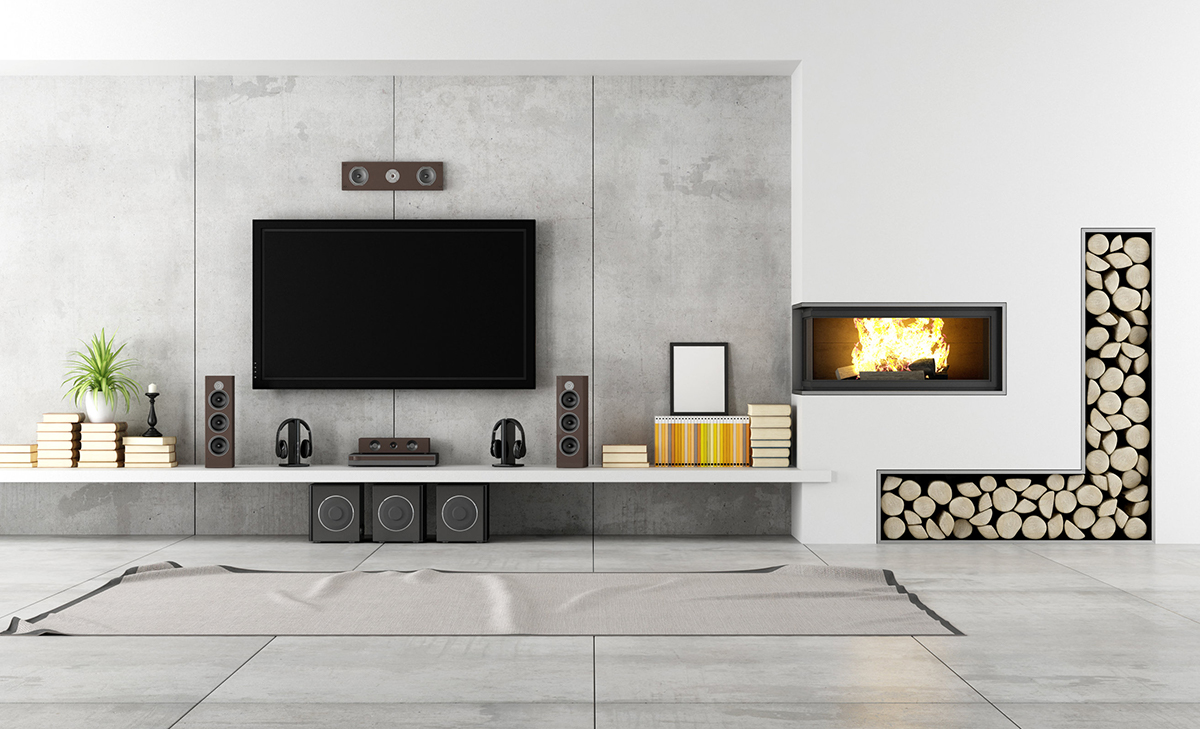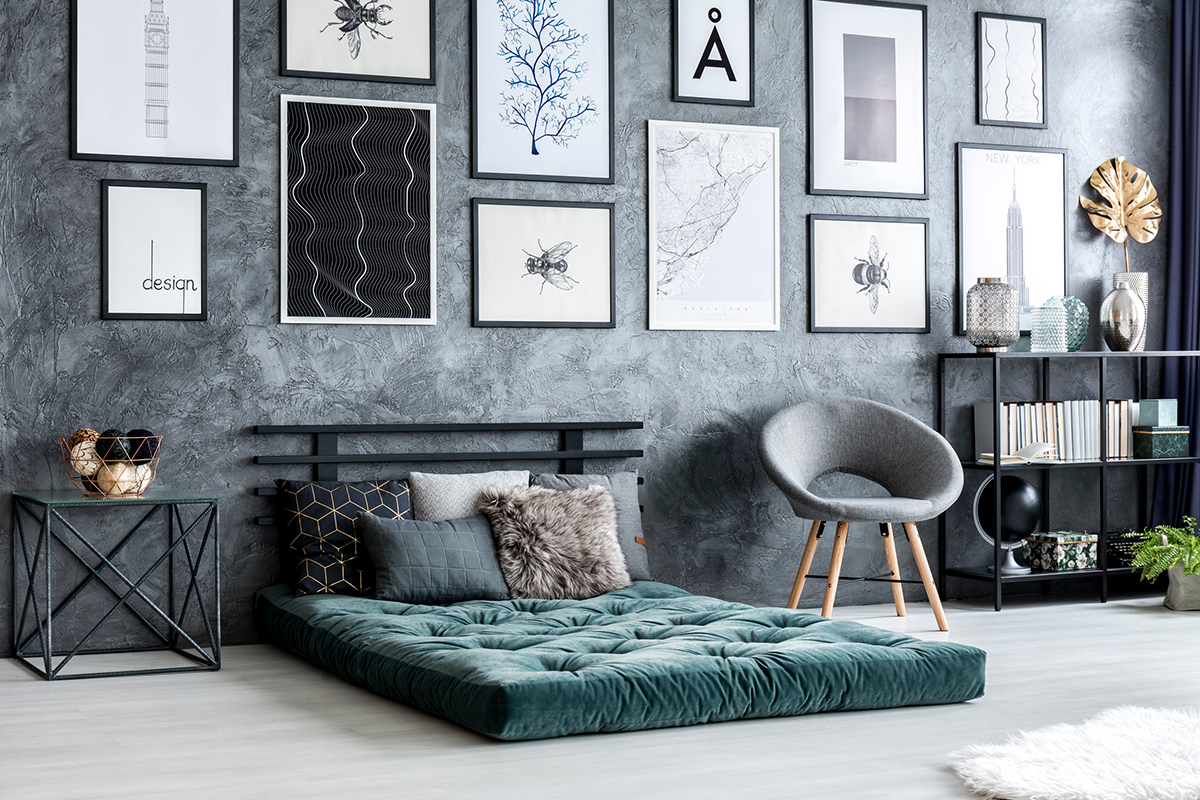
Maybe you like to play your music extra loud, or sometimes host band practice. Maybe your neighbors seem to be playing their music extra loud or hosting band practice, and you can’t tell whether you need to call management or not.
Whether you’re hearing a loud noise or creating it, you may be wondering if your neighbors can have you through concrete walls.
Your neighbors shouldn’t be able to hear conversational noises or average volume music through concrete walls. To hear something through a concrete wall, it would have to be a pretty loud noise.
Concrete is not completely soundproof, though. Some noises might get through, but it is not likely any everyday noise such as conversations or something falling.
Can My Neighbors Hear Me Through Concrete Walls?
If you have privacy concerns, you might be worried about how much your neighbors can hear through your walls.
If your walls are made of concrete, it’s unlikely that your neighbors will be able to hear you through the wall. You can also play your music at a pretty average to loud volume without them noticing. Concrete absorbs and reflects sounds, which is what makes it such a powerful sound barrier.
So what makes concrete such an effective sound barrier? We’ll discuss this further below.
How Sounds Move Through Concrete
Typically, when you live in an apartment or home with concrete walls, not much noise will get through to your neighbors.
This is because concrete absorbs and then reflects the majority of sound that goes through it. Only a small amount would get through to the other side, and even then, it would be minuscule compared to the noise on your side of the wall.
So, if your walls are made of concrete, the noises you hear may be absorbed and reflected more commonly than they’ll be transmitted through the wall. The thicker the wall, the less likely any noise will get through.
Airborne vs. Impact Noises
But is there a difference in the noises you’re hearing?
There are a couple of different noise classifications when it comes to your residence. Airborne noises are the sounds that travel through the air, such as a dog barking in the next room or music playing on a stereo. Impact noises are created when there’s an impact, such as a person falling to the ground or a ball hitting a wall.
As it relates to your concrete walls, though, neither should be getting through very easily. Both should be absorbed and reflected into your space pretty effectively because of the thickness of your wall. If you hear things from the other side of the wall, you may want to double-check that concrete is the material being used or consider whether the noise is coming from above or below.
Soundproofing Your Walls
Building with concrete is often hard labor and expensive. If your home wasn’t built with concrete walls, you might be curious about getting the same effect without the cost. Or, if you do have concrete walls but are worried about privacy, you might want to know how to further soundproof your space.
Here are a few options:
- Soundproofing foam (which would be ideal for a space you own)
- Absorbing wall panels (easy for rentals)
- Fill your space (a low-cost option)
Depending on your budget and the source of the noise, you’ll have to find which method is best for you. Soundproofing isn’t a one-size-fits-all, so try a few different things before committing to an investment in one solution.
Soundproofing Foam for Noise Absorption
Though it’ll take some renovation work on your end, soundproofing foam works wonders for spaces with wooden walls.
Insulation can be installed within the wall. To do this, you’ll either need to contact a professional to do it themselves or learn from one to soundproof walls properly. This is likely not an option if you don’t own your home or are renting. If you’re living in an apartment, this is also an unlikely fix.
Absorbing Wall Panels for Noise Absorption
This is an ideal solution if you’re renting a space or not in a place where you can make renovations.
Noise absorbing sound panels are easy to install and take down, so they won’t likely leave any damage to your apartment. They’re also made from a plethora of different materials. Some are even made with design in mind, coming in different colors or shapes.
Noise-absorbing panels work just as they sound. The material they’re made of, sometimes foam and sometimes made of insulation.
Filling Your Space for Soundproofing
Another easy hack that works well for apartments is to fill your space more.
Like we discussed earlier, noises are either reflected or absorbed. If you have a pretty wide space with not a lot of furniture, the noises are probably just all bouncing off of the walls and being reflected in your apartment or absorbed through the wall.
If you like to play music loudly or are pretty nervous about nosy neighbors, you can adjust your home accordingly. To get your noises more thoroughly absorbed, you can add more furniture to your house.
Particularly soft furniture should be the most helpful. Or, if you have neighbors on one side of you and not the other, you may want to put a sound barrier on your shared wall.
If it’s your loud neighbors you’re worried about, see if you can add a sound barrier to where the noise is coming from. For example, adding a full bookshelf on the shared wall may make a huge difference in noise.
Conclusion
Your neighbors shouldn’t be able to hear you through a concrete wall. If you’re talking at a normal volume or playing music at an average or even louder volume, most noise should be absorbed or reflected by the concrete. If you’re still worried about privacy, you can:
- Install soundproofing foam in your walls.
- Purchase and install absorption panels.
- Fill more of your space.
If you’re hearing your neighbors through your wall and know for sure they are made of concrete, you may consider contacting management.


